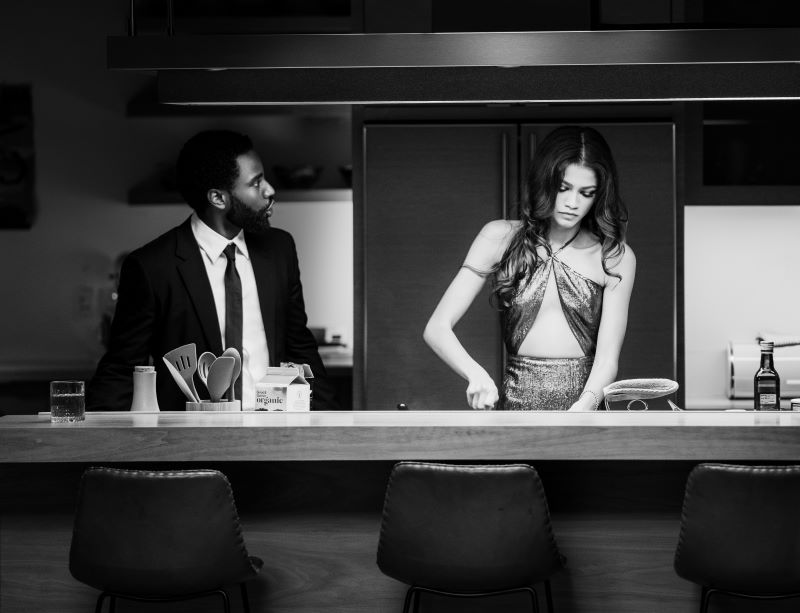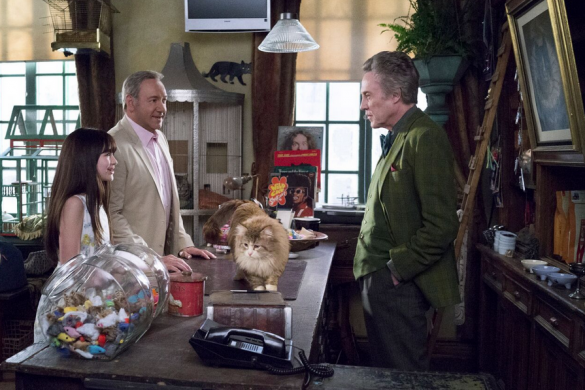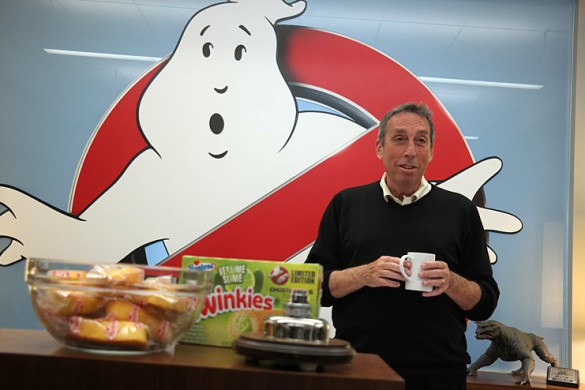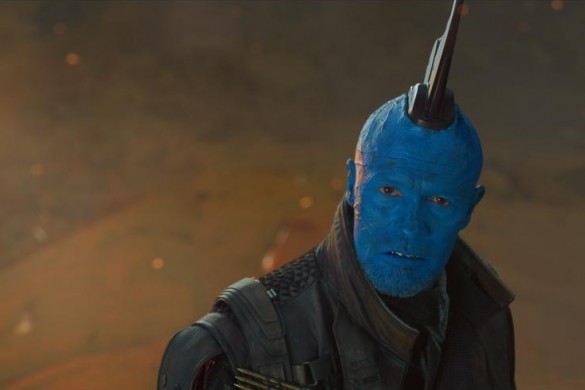There will be a wide variety of hot takes on a film like Sam Levinson’s “Malcolm & Marie,” from beautiful and poetic to unnerving and overly pompous. And honestly, how the film can exist within those dichotomies is frustratingly perplexing, yet it is thoroughly engaging. Zendaya and John David Washington deliver knockout performances as a couple who should celebrate a night of success but delve into the intricacies of a toxic relationship and the online film discourse. So, no matter how you walk away from it, it’s all well-earned. None of its criticisms and praise are hyperbolic.
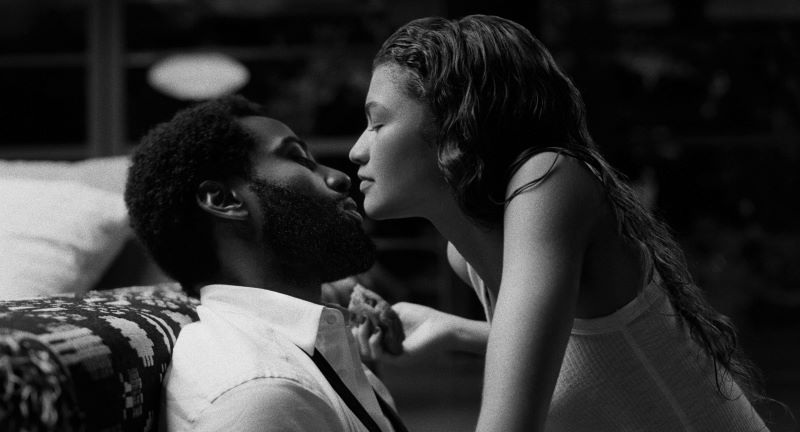
The film opens with Malcolm (John David Washington), a newly minted successful director, and Marie (Zendaya), his girlfriend, come home from his film premiere, which he sees as a success. Though it may be a night to celebrate, it takes a turn to a full-on verbally abusive confrontation as it starts with Marie accusing Malcolm of purposefully forgetting to thank her during his speech. But it’s more than just a minor slip of the mind. There are far more complexities to this heated argument than we know. Because based on the tone and their actions in this one argument, we can see that this is a relationship where the two are madly in love with each other and sing their praise one moment but deeply despise each other by attacking their flaws the next.
Both are an unstoppable force of nature that should not be reckoned with, and neither one of them want to yield to the opposing power. Marie shows no fear in pointing out Malcolm’s insecurities as an egotistical artist and the privileges that helped him achieve his success. He proves that to her as he meticulously nitpicks every word – from positive review no less – who can’t accept that his film is a work of art and not a political statement. She believes that his latest film’s lead character is entirely based on her tragic history as a drug abuser with suicidal tendencies.
On the other hand, Malcolm is outspoken when Marie uses her tragic history as a crutch and has a masochistic streak. He begins to share his account of relationships with women that helped shape the film’s character. Suddenly, The way the two verbally punch each other is unrelenting to a point where their very words pierce your soul. You can see the kind of pain they inflict on each other as they lose themselves in long-winded monologues about their anxieties and imperfections. And strangely, as toxic as it looks, they are telling the truth as a means to express their love towards each other.
Watching Washington and Zendaya go into their monologues, it is easy to see how they get lost in their characters. The film uses minor issues as the basis of the unresolved and historic conflict within their relationship. Their shouting matches are wiped clean by a few kisses or make-up sex. And because of the constant back and forth between heated arguments and minor squabbles, it is difficult to determine the outcome. But what is clear is that there is no real winner in this. All that is left is the revelation that
Zendaya electrifies the screen with her charms and seduction to a point where you don’t see the actor before you but a fully formed character. The emotional slips that Marie goes through are pure and natural, almost as if it was like she is changing clothes. She spends most of the time giving Malcolm so much needed perspective and cuts down his narcissism with her sharp-edged verbiage. She even calls out his lack of talent for making something that is authentic. Not only does this show how versatile Zendaya is as an actor, but the kind of profound experience she has as an actor at her young age whose major credits include KC Undercover, MCU’s Spider-Man film franchise, and The Greatest Showman. But it is her work in Levinson’s Euphoria and “Malcolm & Marie” that prove she is only just starting to show her greatness.
The same can be said for Washington, who proves his worth as a leading man despite not having nearly as long as an acting career as Zendaya. As Malcolm, he is unafraid to speak his truth. His charisma helps puts him on equal footing against Marie’s tirades and gives the audience an understanding of his place within the relationship. However, his history of privilege and wealth is not nearly as exciting or intense as Marie’s tragic story. It only fuels his ego and lowers Marie’s self-esteem.
And even though Levinson’s script is a bit uneven, he gives Washington and Zendaya free range to do with the material as they please. Both let loose on each other in ways that I have never seen before. Cinematographer Marcell Rév use of space gives the characters the room that they need to be expressive in their physical emotions while also precise when the camera concentrates on their faces. Long one-shot takes creates a sense that we are watching everything that is unfolding in real-time, while the tighter shots allow us to see the joys and pains of their otherwise dichotomous relationship without having it feel like we are in prison. And because this was made during the pandemic, the film’s limited settings and two lead characters make for a perfect stage play.
Much of the character drama is rooted in “Malcolm & Marie’s” barrage of diatribes and poetic yet long-winded monologues that are bursting with emotion thanks in part to the monochromatic Kodiak moment. And it’s not entirely relentless as the film gives its titular character time to retreat to their corners for a moment to breathe – Malcolm snacks on a bowl of Mac and Cheese, while Marie soaks in a bathtub -, a smoke break, or sensual embrace. But it’s only a brief reprieve as Malcolm slings insults from across the room while chewing on the Mac and Cheese that Marie made for him. He also has no problem lashing out at her when she is most vulnerable as she is in the bathtub.
And there is something about that scene that exemplifies just how talented these two are. It’s in the way that Washington lays his head on his crossed arms on the bathtub and softly tells Marie that he loves her. The way that Zendaya’s lies still as her lip quivers when she hears those words. It’s in those smaller moments where they can let their emotions tell the story.
While the character’s ugly histories make for a compelling story, the film takes a rather interesting turn when Malcolm starts ranting against film criticism. Though it may sound a bit unhinged at first, there is some truth to what he has to say about the online film discourse. Malcolm doesn’t hold his targeted white critics in high regard because of their inability to find the art within a Black film. He sees them as self-aggrandizing privileged elitists who try to come off as cultured but are actually marginalizing artists of color. Because they don’t see his work as art, they see a political statement. And according to him, it would all be different if a white person directed it.
The audience is taken further down the rabbit hole as Malcolm misconstrues and nitpicks every single word of a positive review from a white critic who writes for the LA Times. What was a brilliant hook at first soon becomes torturous and overly written. It was interesting at first to see how Levinson was coming out at critics through this film. But it gets to a point where it nearly becomes obsessed with critics and less interested in the relationship that makes the film so engaging.
Though flawed, “Malcolm & Marie” shines thanks in part to its cinematography, staging, selection of R&B music – as too on the nose as it may be – , and layered performances from Washington and Zendaya. But it suffocates itself by spending a good chunk of its time focusing on the rantings of Malcolm’s opinions of critics and the polishing of his ego and degree in cinema. There’s no doubt critics are going to come at this film from both sides, praising its strong performances while disparaging it’s the strange shift into meta-madness. Still, if there is one thing to look forward to, it’s that its two leads have a bright future ahead of them.

“Malcolm & Marie” debuts exclusively on Netflix on February 5, 2020
7/10

